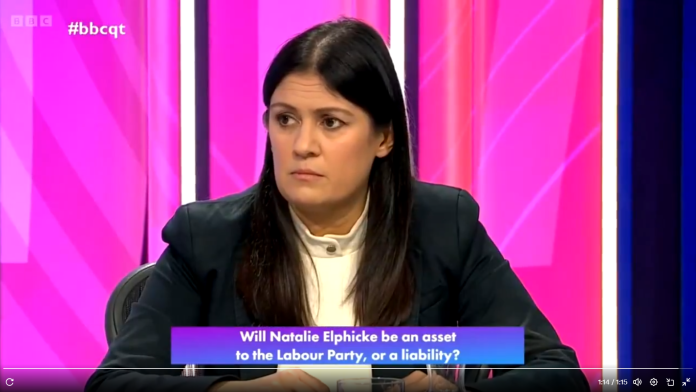Who is Lisa Nandy?
Lisa Nandy’s political trajectory is notable for her ability to navigate the Labour Party’s internal dynamics and adapt to different leadership styles. While she has consistently presented herself as a champion of progressive values, her approach to policy and strategy has sometimes appeared opportunistic, particularly during Jeremy Corbyn’s leadership.
Nandy’s tenure as Shadow Secretary of State for Energy and Climate Change under Ed Miliband’s leadership was relatively low-profile, with limited impact on shaping Labour’s environmental policies. However, her subsequent role as Shadow Secretary of State for Housing under Corbyn’s leadership garnered more attention, as she attempted to balance the demands of Corbyn’s more radical agenda with her own more centrist inclinations. This strategic positioning has led some critics, including myself, to question the depth of her ideological convictions and her willingness to compromise principles for political expediency.
Policy Positions
While Nandy has articulated a commitment to social justice and community empowerment, her policy positions have sometimes lacked clarity and coherence. For instance, her advocacy for localism and devolution is often vague in terms of specific policy proposals and implementation strategies. Critics argue, again including myself, that this rhetoric masks a lack of substantive policy solutions to address systemic inequalities and structural challenges facing local communities.
Similarly, Nandy’s economic agenda, while emphasising the importance of industrial strategy and regional development, has been criticised for its ambiguity and lack of concrete policy proposals. Her support for a mixed economy and state intervention is not unusual within the Labour Party, but questions remain about the feasibility and effectiveness of her proposed approach in practice.
Leadership Ambitions
Nandy’s leadership bid for the Labour Party in 2020 was met with mixed reactions within the party and the wider political sphere. While she positioned herself as a unifying figure capable of bridging the divide between Labour’s traditional heartlands and more progressive urban constituencies, her campaign ultimately failed to gain significant traction.
Critics argue that Nandy’s leadership bid lacked a clear and compelling vision for the future of the Labour Party, with her message often overshadowed by more charismatic and ideologically driven candidates. Additionally, her perceived reluctance to fully embrace Corbynism or offer a bold alternative vision left many party members and supporters disillusioned with her candidacy.
Overall, while Lisa Nandy has undoubtedly made significant contributions to British politics as a Labour MP and shadow cabinet minister, her political journey is marked by a certain pragmatism and strategic ambiguity. While she presents herself as a principled advocate for social justice and progressive values, huge questions remain about the depth of her convictions and the coherence of her policy positions. As Labour continues to navigate its path forward, Nandy’s role within the party must remain subject to scrutiny and debate. If she was in the Tory Party, few would notice.
This establishment, Torylite, is shot down by Grace Blakely. By distancing herself from all the great policies Jeremy Corbyn wanted to implement, she is left with… nothing.
An absolutely astonishing moment during last night’s Question Time when Lisa Nandy upbraided journalist Grace Blakeley for believing in the manifesto she was elected on in 2019.
— Cllr Jack Lenox 🌍 (@GreenPartyJack) May 10, 2024
Surely the honest thing to do would have been to resign? pic.twitter.com/qtGFDxEZJn
This Lisa Nandy:
If you like our content, join us in helping to bring reality and decency back by SUBSCRIBING to our Youtube channel: https://www.youtube.com/channel/UCQ1Ll1ylCg8U19AhNl-NoTg AND SUPPORTING US where you can: Award Winning Independent Citizen Media Needs Your Help. PLEASE SUPPORT US FOR JUST £2 A MONTH https://dorseteye.com/donate/







